Exercise Science News
2021 Student Research Winners
The Falk College Student Research Celebration is an annual event that takes place to highlight undergraduate and graduate student research projects Students submit posters for display and are judged by a committee of faculty, staff, and peers. Participants compete for educational funds to present their posters on a larger stage, to attend a conference to gain further insights into their respective fields, or for other educational endeavors. This year’s celebration took place virtually.
Undergraduate Winners
How to Allocate the NFL Salary Cap with a Highly Paid Quarterback
Name: Zachary Koeppel
Program/Major: Sport Analytics
Faculty Research Mentor: Professor Rodney Paul
The Association that Gender Roles have with Health Seeking Behavior for Women in Kenya, Tanzania, and Uganda
Name: Gloria Nabbosa, Professor Sandra Lane, and Professor Brittany Kmush
Program/Major: Public Health
Faculty Research Mentor: Professor Brittany Kmush
EAT-26 Effectiveness in Detecting Eating Disorders in College Students
Name: Rose Noterman, Sivan Avramovich, and Professor Jessica Garay
Program/Major: Nutrition Science
Faculty Research Mentor: Professor Jessica Garay
Under the Radar: An NBA/NCAA Player Similarity Model Utilizing a Factor Analysis & Radar Plots
Name: Dominic Samangy
Program/Major: Sport Analytics
Faculty Research Mentor: Professor Justin Ehrlich
Malaria Control with Pyrethroids and Cognitive Deficits in Pre-School Aged Children in Sub-Saharan Africa: A Meta-Analysis of Cross-Sectional Surveys
Name: Megan Willkens
Program/Major: Public Health and Policy Studies
Faculty Research Mentor: Professor David Larsen
Graduate Winners
Associations Between Physical Activity, Body Mass Index and Carotid Extra-Medial Thickness in Children
Name: Danielle Arcidiacono, Wesley Lefferts, Professor Brooks Gump, and Professor Kevin Heffernan
Program/Major: Exercise Science, M.S.
Faculty Research Mentor: Professor Kevin Heffernan
Parental Autonomy Support and College Students’ Well-being
Name: Xiaoyu Fu, Woosang Wang, and Professor Eunjoo Jung
Program/Major: Human Development and Family Science, Ph.D.
Faculty Research Mentor: Professor Eunjoo Jung
Working Mothers’ Job Demands, Work-family Conflict, and Job Satisfaction in East Asia: A Comparison of China, Taiwan, and Japan with National Sample
Name: Rui Tian and Professor Kamala Ramadoss
Program/Major: Human Development and Family Science, Ph.D.
Faculty Research Mentor: Professor Kamala Ramadoss
June PTSD Awareness Month
Falk College, National Science Foundation(NSF) REU Program Host Discussion Series for PTSD Awareness Month in June
To educate the local community about issues related to Posttraumatic Stress Disorder (PTSD), Syracuse University’s Falk College, is offering a discussion series during the month of June, which is designated as National PTSD Awareness Month. PTSD is a psychiatric disorder that can occur following the experience or witnessing of life-threatening events, such as military combat, natural disasters, terrorist incidents, serious accidents, or physical or sexual assault.
The discussion series to raise public awareness of PTSD and its effective treatments is free and open to the public. It takes place in conjunction with the Trauma Research Education for Undergraduates program, a joint effort by Syracuse University, SUNY Upstate Medical University and SUNY Oswego to improve access to research experiences for groups typically underrepresented in research.
The project, “Training Diverse Undergraduate Teams of Veterans and Non-Veterans to Conduct Trauma Research with Veterans,” is directed by Brooks B. Gump, Falk Family Endowed Professor of Public Health and co-directed by Professor Karen Wolford, who also coordinates the interdisciplinary graduate certificate program in trauma studies at SUNY Oswego.
The discussion series includes:
Wednesday, May 26 at 2:00, Virtual
Scott Aubin, U.S. Air Force veteran, PTSD awareness instructor, “Dealing with unrecognized PTSD”.
Wednesday, June 2 at 2:00 pm, Virtual
Kyle Possemato, clinical research psychologist, Syracuse VA Center for Integrated Healthcare, “Novel Interventions to Engage Veterans with Unmet Mental Health Needs in Care”.
Monday June 9 at 2:00 pm, Virtual
Thom DeLara, Professor of Practice and Chair of the Department of Marriage and Family Therapy at Syracuse University “Systems Theory, Trauma and Research”.
Wednesday, June 16 at 2:00 pm, Virtual
Keith Alford PhD, Syracuse University Chief Diversity Officer, “Racial, cultural and ethnic response differences to PTSD”.
Wednesday June 23 at 2:00, Virtual
Lt Col. Ian Stewart MD, FACP, FASN, U.S Air Force, Medical Corps, Bethesda, MD. “Long-term mental and physical health after combat trauma”.
Wednesday June 23 at 3:00, Virtual
Jeffrey T. Howard, PhD, Assistant Professor, Department of Public Health, College for Health, Community and Policy, University of Texas at San Antonio, “Military Exposures and Accelerated Aging: Understanding Trauma as a Chronic Disease.”
Supported by a National Science Foundation Research Education for Undergraduates grant and the Institute for Veterans and Military Families (IVMF), this REU program spans one year, including an intensive six-week summer program in June. This program provides research training to increase skills in conducting trauma research while increasing a student’s ability to gain admission to competitive graduate programs.
“Through a competitive national review process, we have selected a group of student-Veterans and traditional students to complete this research training this summer,” says Wolford. “The students will be paired on teams with mentors to research PTSD and will later present their research at national conferences”.
“As part of this research training, we invite guest speakers who have expertise in the area of PTSD to inform our research trainees on cutting edge developments on traumatic stress research. We open these expert talks to the community as part of the June Posttraumatic Stress awareness month, which is an ongoing national effort to educate about PTSD,” Wolford adds.
For more information about the speakers or REU program, contact Moise Laub at mplaub@syr.edu or visit traumaresearch.syr.edu.
Watch Falk College’s Commencement and Convocation Ceremonies
Chancellor Syverud addressed students in the School of Architecture; College of Arts and Sciences; Maxwell School of Citizenship and Public Affairs; David B. Falk College of Sport and Human Dynamics; School of Education; and University College during the ceremony Saturday, May 22.
During the commencement ceremony professor’s David Larsen and Brittany Kmush in Falk College’s Department of Public Health both received the Chancellor’s medal for their work helping Syracuse University to successfully navigate the COVID-19 crisis. Their expertise in endemiology and public health ensured that the University’s policies were informed by data and aligned with best practices. The Chancellor’s Medal is the highest honor Syracuse University offers and is rarely given. Both had also received the Chancellor’s Citation for Excellence during this year’s One University Awards for their invaluable contributions, extraordinary work and selfless efforts to ensure a safe, healthy and rewarding residential experience for our students, faculty and staff in the midst of the global COVID-19 pandemic.
Falk College also presented a live virtual Convocation at 11 a.m. ET on Saturday, May 22. Watch the recording below.
Congratulations Class of 2021!
Along with Dean Murphy, the entire Falk College community of students, faculty, staff, alumni, community partners and friends, congratulates the Class of 2021! Over the past several weeks, departments across Falk College honored student achievements and celebrated the graduating Class of 2021, which are detailed on individual department websites.
Graduates and families should visit the main page on the Commencement website on Saturday, May 22 at 11 a.m. EST to view the virtual school and college convocations, including the Falk Convocation, and livestream of all Commencement ceremonies. Recordings of virtual convocations will be posted online so that graduates and their families can view them at a later date.
Details about Syracuse University Commencement weekend, May 22-23 are available, including specific information about safety protocols for those attending in person.
“To the Class of 2021, as the newest Falk alumni, you join an accomplished community of socially responsible citizens who can and who must lead change,” notes Diane Lyden Murphy, dean, Falk College.
We know you will lead the way! Congratulations, and best wishes!
Patterns of Excellence
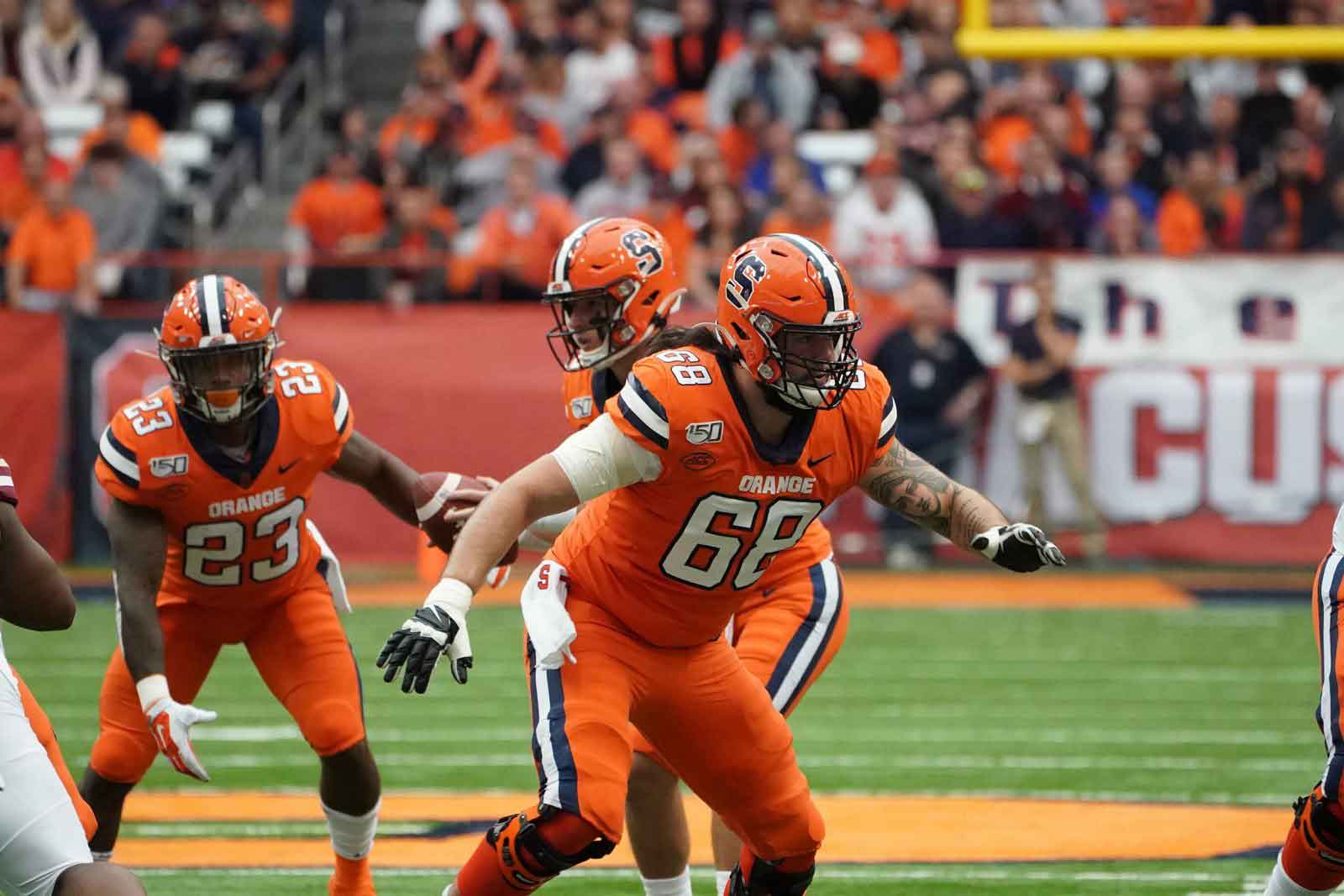
Offensive lineman Airon Servais ’19, G’21 has a knack for reading patterns—whether scanning a defensive formation before the snap or solving the Rubik’s Cube in less than a minute. “I’m all about recognition and reaction, in football and in life,” says the redshirt senior, brandishing a backward baseball cap and low ponytail.
The first recruit of the Dino Babers era, the 6-foot-6-inch, 291-pound tackle has proven himself a durable leader—a muscular combination of speed, grit and power. Servais’ commitment to protecting his quarterback’s blind side is vital to the team’s up-tempo spread.
Duke found this out last fall, when Servais switched from center to left tackle. He not only helped the Orange run that day for a season-high 286 yards but also cemented his status as a formidable pass blocker. The offensive co-captain finished 2019 with an impressive 940 snaps and 47 knockdown blocks.
“As a tackle, I’m able to flash my athletic ability,” says the Green Bay native, who has started every game of the past four seasons. “I don’t have to be as vocal as when I’m at center, making calls and adjustments, but I still need to be cognizant of what the entire defense is doing at all times.”
Servais’ exemplary leadership and on-field production were recognized in his receipt of the 2019 Ben Schwartzwalder Award, named for Syracuse’s legendary Hall of Fame coach. But don’t let the hard-nosed stereotype fool you. Fans are often surprised to learn that when Servais is not reading a 4-3 or 3-4 front, he usually is poring over books about how the body reacts and adapts to exercise. Pursuing a master’s degree in the Falk College, Servais is considering multiple career options, including teaching, personal training and chiropractic medicine.
Not that the 2021 NFL draft is off the table.
“It’s important to have a Plan B,” admits Servais, who earned a bachelor’s degree in health and exercise science from Falk in 2019. “Much of what I do in the classroom translates onto the field and vice versa.”

The son of “incredibly smart” parents, Servais discovered mathematical structure in the fifth grade with the Rubik’s Cube. Creating patterns on it came easily to him, but he waited until high school to solve the cube on his own.
One weekend, a friend gave him a crash course. “I typed all the algorithms into my phone and then practiced them for four hours,” recalls Servais, stroking his goatee. “That first day, I finished the cube in about three minutes.” His current record is 38 seconds.
Servais also can recite the alphabet backward and rattle off the first 30 digits of Pi. “I’m a pretty good yo-yoer and skateboarder, too,” he beams. “Proper training means combining physical and mental fitness with lots of practice. It’s made me a good student-athlete and has helped us win football games.”
An SU story by Rob Enslin originally published on September 22, 2020.
Connecting How We Live With What Keeps Us Living
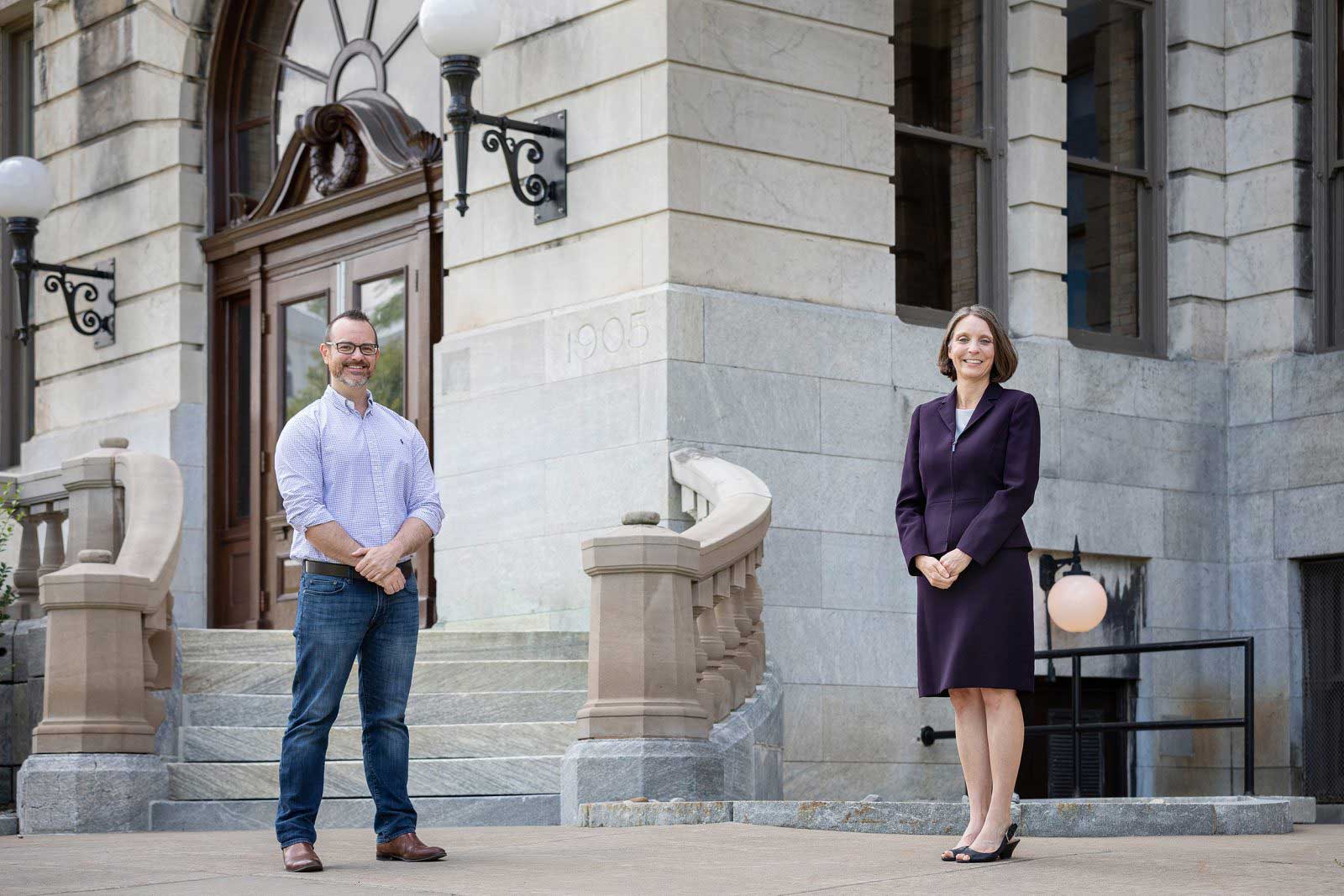
The Syracuse University research cluster initiative aims to tackle problems that lie at the intersection of multiple fields of study by encouraging the formation of groups of interdisciplinary scholars. The Aging, Health and Neuroscience cluster brings together faculty from fields such as economics, neurology, psychology, sociology and sports medicine to understand not only what leads to long lives, but healthy lives. “Types of problems with both biological components and psycho-social dimensions will really benefit from the scholarship of the Aging, Health and Neuroscience cluster,” says Professor Janet Wilmoth, chair of the sociology department at the Maxwell School, director of the Syracuse University Aging Studies Institute and the cluster lead.
A Culture of Collaboration
Before the formation of the Aging, Health and Neuroscience cluster, it may have been rare for someone like Wilmoth to attend a talk on neurobiology. But the cluster initiative has “encouraged a culture of collaboration,” says Wilmoth, an expert on aging. “Syracuse University is creating structural change, in which opportunities are provided for developing innovative ideas.”
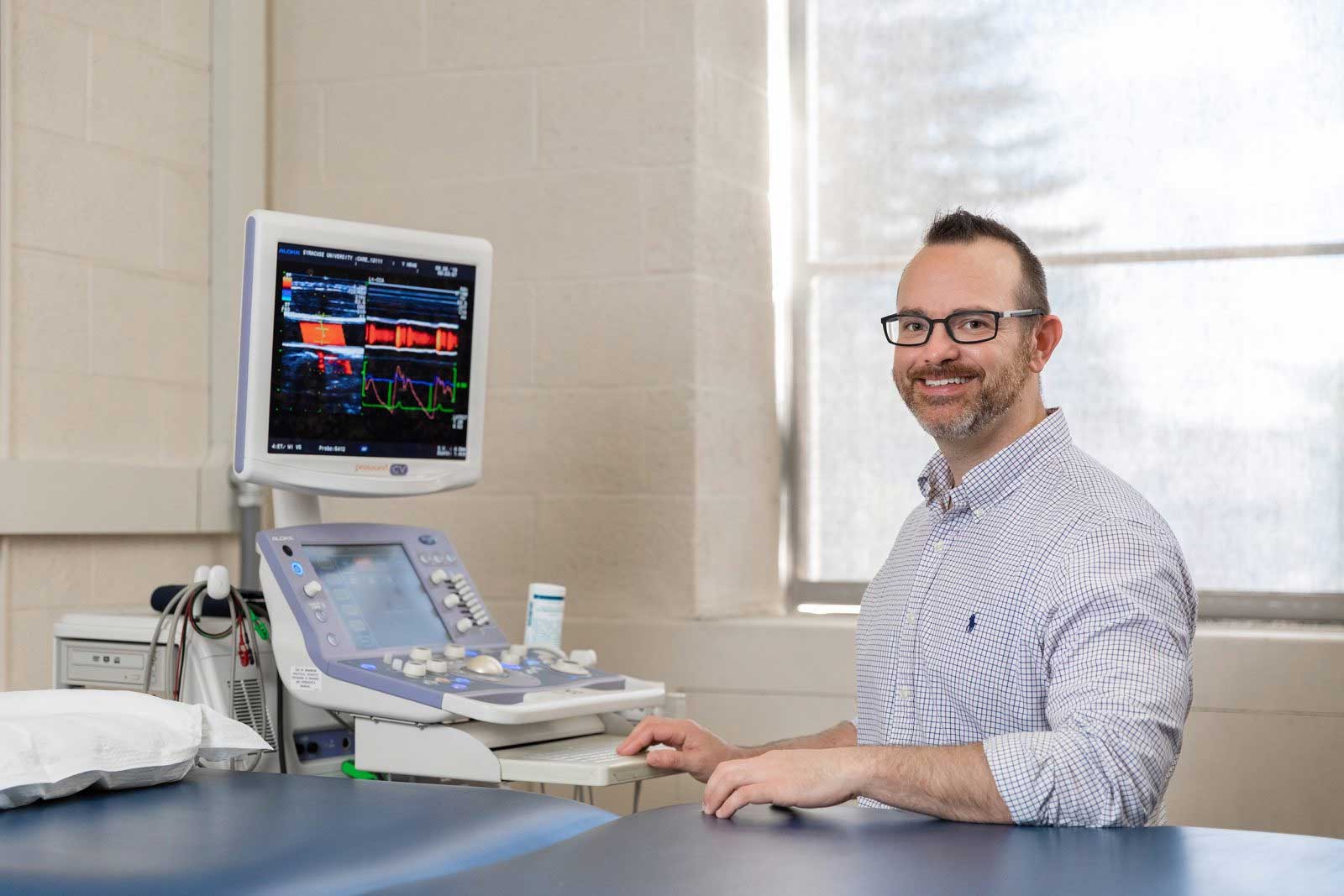
At a talk by a public health researcher, one such idea was born through a conversation between Wilmoth and Kevin Heffernan, associate professor of exercise science at Falk College, who studies vascular function. The project has since received a 2020 Collaboration for Unprecedented Success and Excellence (CUSE) grant at Syracuse, led by Heffernan with co-principal investigators Wilmoth and Andrew London, associate dean and professor of sociology in the Maxwell School.
The project plans to examine the link between vascular health and mortality across a wide range of individuals over a long period of time. Heffernan says a common idea in his field is that “we are only as old as our blood vessels,” meaning the functionality of our blood vessels is a better predictor of long-term health than our actual age. “Artery age refers to the hardening of the arteries,” he says. Artery stiffness can be measured, but a new model claims to be able to predict artery stiffness using only a person’s age and blood pressure. Alone, this model is a powerful tool. But Wilmoth and London have “population data from over 15,000 people, over 30 years. This includes age and blood pressure, as well as things like socioeconomic status, mental health status, physical activity and diet,” says Heffernan. Altogether, this enables researchers not only to study the relationship between artery stiffness, health and mortality in a large group of people, but to explore potentially critical connections between vascular health, overall physical health and social or environmental characteristics. In particular, Heffernan, Wilmoth and London point to understanding disparities in life expectancy across race and ethnicity as especially urgent.
“Now is an important time to address our mounting health inequalities and pressing social justice issues,” says Wilmoth. In addition to structural challenges like “a demographic shift with the aging of the ‘Baby Boom’ population and related fiscal challenges with social security, there are shocking racial and ethnic disparities in health across states,” she says. To solve these problems, “we need everyone from bench scientists to social scientists studying these issues,” she adds.
New Points of View Lead to New Ideas

Being exposed to these new methods and data has inspired even more new projects at the intersection of health and sociology. As Wilmoth says, this exposure “generates a new appreciation for the work others are doing, as well as new ideas.” For example, Heffernan recently received a Lerner Faculty Fellows grant to pursue the connection between artery health and the racial disparities observed in COVID-19-related health problems and death.
We are living in an exceptional moment, in which we are grappling with shortcomings in our health care, social and justice systems. At the same time, the scientific tools at our disposal are more powerful than ever. Wilmoth points out that never before have we had so much data on people, from occupations to depression levels to gene sequences. In being able to link social information to biomarkers, Wilmoth says, “the possibilities are endless.” The Aging, Health and Neuroscience cluster is already working to turn these possibilities into realities.
~ Amanda Parker
This is a Syracuse University story published on August 18, 2020.
Falk College welcomes new faculty and staff
Syracuse University’s Falk College is pleased to welcome four new staff members who have joined Falk College in the past academic year: Donna Fecteau, Administrative Assistant in the Department of Exercise Science; Julia Fuqua, Office Coordinator in the Department of Exercise Science; Heather Mauro, Internship Placement Coordinator in the School of Social Work, and; Melissa Tobin, Counselor, Academic Services in the Office of Student Services.
In addition, Falk College is pleased to announce the appointment of six new faculty members, Bernard Appiah, Maria Erdman, Kenneth Marfilius, Miriam Mutambudzi, Latha Ramalingam, and Maryam Yuhas, in addition to six faculty who join Falk College with the Department of Exercise Science, Tiago Barreira, Tom Brutsaert, Keith DeRuisseau, Kevin Heffernan, Joon Young Kim, and Kristen Konkol.
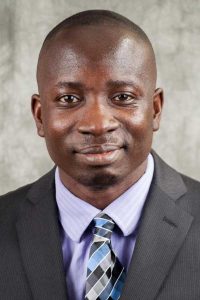 Bernard Appiah
Bernard Appiah
Assistant Professor, Department of Public Health
Bernard Appiah joins the Department of Public Health in Falk College as Assistant Professor in Fall 2020.
Prior to joining Syracuse University, Appiah was Assistant Professor at Texas A&M University’s School of Public Health in the Departments of Environmental and Occupational Health and Public Health Studies. He was the Founding Director of the Research Program on Public and International Engagement for Health. Previously, Appiah served as a Drug Information Pharmacist/Publications Manager at the National Drug Information Resource Centre (NDIRC) for the Ministry of Health in Ghana. He has taught courses such as environmental and occupational health communication, social context of population health, and comparative global health systems.
Appiah’s research interests lie in socio-behavioral approaches for exploring public health issues, global health and environmental health with emphasis on socio-behavioral change communication, public/community engagement interventions, and dissemination of information/knowledge through culturally appropriate communication channels. He is published in several journals, including Psychiatry Research, BMC Complementary Medicine and Therapies, Journal of Medical Internet Research (JMIR) mHealth and uHealth, and authored book chapters, technical reports, and many articles for mass media. He has presented at the International Workshop for Practitioners of Engagement Between Health Researchers and Schools in Kilifi, Kenya, the West African Society of Pharmacologists (WASOP) Conference in Ghana, and the Academy for Future International Leaders (AFIL) Open Session Seminar on Global Health Issues.
Appiah’s research has received support from the Wellcome Trust, UK, the Bill and Melinda Gates Foundation, Grand Challenges Canada, USAID Ghana, and Texas A&M University. Among the most recent supporters of his research is the National Heart, Lung, and Blood Institute (NHLBI) of the National Institutes of Health. Appiah is the recipient of numerous teaching and research fellowships and other honors including being named as a Carnegie African Diaspora Fellow in 2018 and 2016. He currently serves as Head of Capacity Building and Research Programmes for the Pan-African Network for Popularization of Science and Technology and Science Communication (African Gong); member of the Healthcare Safety and Quality Expert Committee of the U.S. Pharmacopeia, and; reviewer for Public Understanding of Science.
Appiah earned his Dr.PH in Health Promotion and Community Health Sciences in 2013 and his M.S. in Science and Technology Journalism from Texas A&M University’s School of Public Health and College of Veterinary Medicine & Biomedical Sciences, respectively. He earned his master’s in Development Communication from the University of the Philippines Open University (UPOU) and his B.Pharm in Pharmacy from Kwame Nkrumah University of Science and Technology (KNUST) in Ghana.
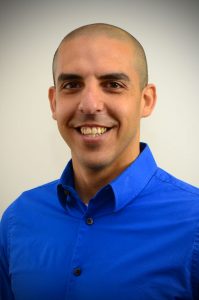
Tiago Barreira
Assistant Professor, Department of Exercise Science
Tiago Barreira joins Falk College as Assistant Professor in the Department of Exercise Science in Fall 2020. He teaches courses such as systemic physiology and exercise, research methods in exercise and sports science, measurement and evaluation in exercise science, physical activity and public health, and obesity and body composition.
Prior to joining Falk College in 2020, the Department of Exercise Science was positioned within Syracuse University’s School of Education, where Barreira has served as Assistant Professor since 2014. Barreira is also the Director of the Kinesmetrics Laboratory at Syracuse University. Prior to joining Syracuse, he completed a Postdoctoral Fellowship at the Pennington Biomedical Research Center. Barreira’s research focuses on the measurement of physical activity: establishing validity and reliability evidence of physical activity measurement tools; determining how to use physical activity measurement tools to obtain reliable and accurate information on physical activity patterns; the use of physical activity measurement tools as a motivation to promote increased physical activity levels, and; investigating the relationship between physical activity and cardiovascular disease risk factors. His work is published in several journals, most recently in International Journal of Environmental Research and Public Health, the Journal of Aging and Physical Activity, Disability and Rehabilitation, Artery Research, and the Journal of Sports Medicine and Physical Fitness among others. He has given presentations for the International Biometric Conference, The American College of Sports Medicine, and the International Conference on Ambulatory Monitoring of Physical Activity and Movement, among others.
Past research has received support from the National Institutes of Health, American Heart Association, Institute for Educational Sciences SHAPE America, Fight for Hearts, among others. Barreira is a journal editor for the Physical Activity section of Measurement in Physical Education and Exercise and is a manuscript reviewer for several journals and publications. He currently serves as Co-Chair of the Measurement and Evaluation Special Interest Group from SHAPE America and a member of the American College of Sports Medicine Mid-Atlantic Chapter Research Committee.
Barreira earned his Ph.D. in Human Performance with a concentration in Kinesmetrics in 2010 from Middle Tennessee State University, where he also earned his M.S. in Exercise Science. He also earned a B.A. Physical Education and B.S. in Business Administration from the University of North Carolina at Wilmington.
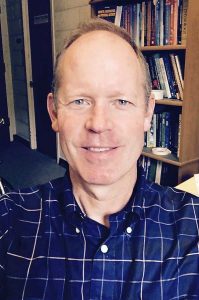 Tom Brutsaert
Tom Brutsaert
Professor, Department of Exercise Science
Tom Brutsaert joins Falk College as Professor in the Department of Exercise Science in Fall 2020. In the department, he teaches courses such as energy metabolism and exercise, physiology of exercise, environmental physiology, high altitude physiology and biology, and human biological variation.
Prior to joining Falk College in 2020, the Department of Exercise Science was positioned within Syracuse University’s School of Education, where Brutsaert has served as Professor since 2016 and previously as Associate Professor since 2009. At Syracuse, Brutsaert is the Director of the Altitude Simulation Laboratory, holds a courtesy appointment in the Department of Anthropology, and helps to coordinate the Human Performance Laboratory. Before joining Syracuse University, he held several positions at SUNY Albany. There, he was a Fellow in the Center for Social and Demographic Analysis, and was Associate Professor in the Department of Anthropology from 2005 to 2009 after being promoted from Assistant Professor. He also served as Co-Director of the Human Biology Program from 2003 to 2004. He completed an NIH Postdoctoral Fellowship at the University of California at San Diego’s School of Medicine in the Division of Physiology.
Brutsaert has broad research interests in how gene and environment interact to produce variation in human athletic ability and health and disease. His work is published in several publications, most recently in Frontiers in Genetics, Proceedings of the National Academy of Sciences of the United States of America, European Journal of Applied Physiology, the American Journal of Physical Anthropology, and International Journal of Molecular Sciences, among others. He has given presentations at the International Conference on Genomics, Leh High Altitude Symposium, World Congress on High Altitude Medicine and Physiology, for the Center for Physiological Genomics, and others.
Past research has received support from the National Science Foundation (NSF Division of Behavioral and Cognitive Sciences, National Institute of Child Health and Human Development, the National Geographic Foundation, and a Fulbright Specialist Award. Brutsaert serves on the Advisory Editorial Board for Sports Sciences for Health and the Editorial Board for High Altitude Medicine and Biology, and previously served in editorial and reviewer roles for other journals, books, and grants.
Brutsaert earned his Ph.D. in Biological Anthropology in 1977 from Cornell University, where he also earned his M.S. in Human Nutrition and M.A. in Biological Anthropology. He earned his B.A. in Biology from Northeastern University.
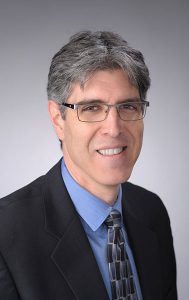 Keith DeRuisseau
Keith DeRuisseau
Associate Professor and Chair, Department of Exercise Science
Keith DeRuisseau joins Falk College as Associate Professor in the Department of Exercise Science in Fall 2020. He is currently the Chair of the department and teaches courses such as introduction to exercise science, physiology of exercise, and skeletal muscle physiology.
Prior to joining Falk College in 2020, the Department of Exercise Science was positioned within Syracuse University’s School of Education, where DeRuisseau has served as Associate Professor since 2012 and previously as Assistant Professor since 2006. Before joining Syracuse University, he was a Postdoctoral Associate in the Department of Applied Physiology and Kinesiology at the University of Florida.
DeRuisseau’s research investigates potential mediators of skeletal muscle dysfunction under conditions that include disuse, aging, and trisomy (a model of Down syndrome). An emphasis is placed on how iron, oxidants, and antioxidants contribute to skeletal muscle mass and functional responses. He is published in several journals, most recently in Applied Physiology, Nutrition, and Metabolism, the Journal of Applied Physiology, International Journal of Molecular Sciences, European Journal of Sport Science, and Respiratory Physiology & Neurobiology. He has presented his work at Experimental Biology annual meetings and for the American College of Sports Medicine.
Past research has received support from the National Institutes of Health (NIH) Eunice Kennedy Shriver National Institute of Child Health and Human Development (NICHD) and National Institute on Aging (NIA), the Diabetes Group of the Hill Collaboration on Environmental Medicine, the Syracuse University Gerontology Center, and others. DeRuisseau is a 2015-16 Fulbright U.S. Scholar Grant awardee for the Fulbright-Saastamoinen Foundation Grant in Health and Environmental Sciences. He is a member of the American Physiological Society and invited manuscript reviewer for publications such as Medicine and Science in Sports and Exercise, the International Journal of Sport Nutrition and Exercise Metabolism, and the Journal of Applied Physiology, among others.
DeRuisseau earned his Ph.D. in Movement Science from Florida State University in 2002. He earned his M.S. and B.S. in Exercise Science, both from the University of Massachusetts at Amherst.
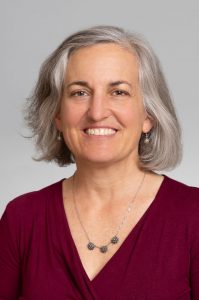 Maria Erdman
Maria Erdman
Associate Teaching Professor, Department of Nutrition and Food Studies
Maria Erdman joins the Department of Nutrition and Food Studies in Falk College as an Associate Teaching Professor in Fall 2020. At Syracuse, Erdman will teach in the nutrition program.
Prior to joining Syracuse University, Erdman was employed at Morrison Healthcare at Upstate University Hospital as a Clinical Outpatient Dietitian at the Upstate Cancer Center since 2014. Prior to that time, she was a Clinical Inpatient Dietitian. Previously, she was a Graduate Research and Teaching Assistant at Syracuse University, and also worked as a Laboratory Manager and Research Technician at UC Davis, Yale College, and Syracuse University.
Erdman’s research on nutrition on college campuses is published in Public Health Nutrition and Health Promotion. She has presented at the Food and Nutrition Conference and Exposition of the American Dietetic Association (2010) and NYSDA Annual Meeting (2009). She has given many nutrition lectures and educational sessions at Oasis/Healthlink Learning Center at Upstate Medical University, Upstate Cancer Center, Upstate Healthlink On Air Radio Program, and Upstate Medical University Physical Therapy, among others.
She is the recipient of several awards, including the Upstate Cancer Center Nutrition Services Fund, a grant from the Upstate Foundation to pay the nutrition counseling bills of cancer patients at Upstate Cancer Center, as well as the 2016 President’s Employee Recognition Award, Clinical Team of the Year. She also received the 2010 Outstanding Dietetics Student Dietetic Internship Award from the New York State Dietetic Association (NYSDA) and the Outstanding Graduate Student in Nutrition Science from Syracuse University. She has served in several volunteer positions for the CNYDA, including president, and has served in volunteer roles at the Crouse Hospital Clinical Dietetics Department, Syracuse City School District, and Community Supported Agriculture of Central New York, among others.
Erdman earned a M.S. in Nutrition Science at Syracuse University in 2009, where she also completed her Dietetic Internship, and a B.S. in Genetics at the University of California, Davis.
She earned certifications as a Board Certified Specialist in Oncology Nutrition (CSO) 2015-20 and a Board Certified Nutrition Support Clinician (CNSC) 2012-17.
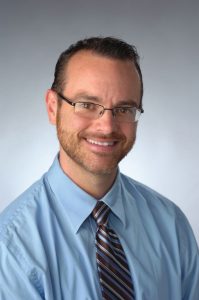 Kevin Heffernan
Kevin Heffernan
Associate Professor, Department of Exercise Science
Kevin Heffernan joins Falk College as Associate Professor in the Department of Exercise Science in Fall 2020. In the department, he teaches courses such as exercise and aging, cardiac rehabilitation, and advanced cardiovascular exercise physiology.
Prior to joining Falk College in 2020, the Department of Exercise Science was positioned within Syracuse University’s School of Education, where Heffernan has served as Dean’s (Distinguished) Associate Professor since 2011. He currently serves as the Director of the Human Performance Laboratory at Syracuse University. Previously, he completed a Post-Doctoral Fellowship at the Tufts Medical Center, Molecular Cardiology Research Institute and the Jean Mayer USDA Human Nutrition Research Center on Aging from 2008 to 2011.
Heffernan’s research examines the interaction of diet, nutritional supplementation and exercise, with an emphasis on resistance exercise, on vascular function in health, disease and disability throughout the human lifespan. His work is published in several journals, most recently the Journal of the American College of Cardiology, JAMA Cardiology, and the Journal of Applied Physiology. He has presented recent work on exercise and cardiovascular health at the American College of Sports Medicine and the North American Artery Society scientific conferences as well as work related to health disparities in cardiovascular disease risk to members of the Congressional Black Caucus. He is Past-President of the Mid-Atlantic Regional Chapter of the American College of Sports Medicine.
Past research has been funded by the American College of Sports Medicine and the American Heart Association. Current work is funded by the National Institute on Minority Health and Health Disparities, part of the National Institutes of Health. Heffernan serves on the Syracuse University Institutional Review Board, Interdisciplinary Neuroscience Faculty, is an Aging Studies Institute Research Member and a Lerner Center for Public Health Promotion Faculty Fellow.
Heffernan earned his Ph.D. in Kinesiology/Exercise Physiology from the University of Illinois at Urbana-Champaign in 2008. He holds a M.S. in Applied Physiology and Nutrition from Columbia University, and a B.S. in Exercise Science from the University of Scranton.
 Joon Young Kim
Joon Young Kim
Assistant Professor, Department of Exercise Science
Joon Young Kim joins Falk College as an Assistant Professor in the Department of Exercise Science in Fall 2020. In the department, he teaches courses such as pediatric obesity and systemic physiology and exercise.
Prior to joining Falk College in 2020, the Department of Exercise Science was positioned within Syracuse University’s School of Education, where Kim has served as Assistant Professor since 2019. He currently leads the Clinical Research Laboratory at Syracuse University. Previously, he was a National Institutes of Health-supported T32 Postdoctoral Scholar at the University of Pittsburgh School of Medicine and Postdoctoral Associate at the UPMC Children’s Hospital of Pittsburgh from 2015 to 2019.
Kim is a Ph.D.-scientist and a clinical researcher in exercise physiology with specific focus on childhood obesity, metabolism, and type 2 diabetes. His research focuses on pathophysiology of youth-onset prediabetes/type 2 diabetes, identification of novel phenotypic biomarkers and genetic targets of obesity and type 2 diabetes, and effects of lifestyle intervention on type 2 diabetes risk in obese youth. His work is published in several high-impact journals including Diabetes Care, Diabetes, and the Journal of Clinical Endocrinology & Metabolism. He has given presentations at the American Diabetes Association, American College of Sport Medicine, Endocrine Society, and others.
Past research has been funded by the National Institute of Diabetes and Digestive and Kidney Diseases and the Arizona State University Research Support Program. He has received scholarships and awards from Yonsei University and Arizona State University, as well as the International Society for Pediatric and Adolescent Diabetes and the Endocrine Society. He currently serves as an Advising Member for the American Diabetes Association’s Exercise Physiology Interest Group Leadership Team, an Organizing/Scientific Committee Member for the World Obesity and Weight Management Congress, and an Editorial Board Member for the Journal of Obesity and Metabolic Syndrome.
Kim earned his Ph.D. in Kinesiology/Exercise Physiology from Arizona State University in 2015. He holds a B.S. in Physical Education from Yonsei University in South Korea.
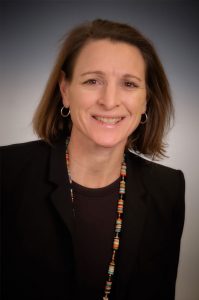 Kristen Konkol
Kristen Konkol
Assistant Teaching Professor, Department of Exercise Science
Kristin Konkol joins Falk College as an Assistant Teaching Professor in the Department of Exercise Science in Fall 2020. She has a dual appointment in the School of Education. In the department, she teaches courses such as structural kinesiology for performance enhancement and injury prevention, structural kinesiology, scientific principles of conditioning, and concepts of fitness. She also runs the internship and experience credits for the department.
Prior to joining Falk College in 2020, the Department of Exercise Science was positioned within Syracuse University’s School of Education, where Konkol has served as Assistant Professor since 2018, and formerly as part-time faculty. Previously, Konkol was an Assistant Professor in the Department of Human Performance, Exercise Science/Physiology at the Minnesota State University, Mankato, where she taught courses such as individualized exercise, aerobic conditioning, and concepts of fitness, among others. She also held an adjunct faculty position there, as well as coaching positions at the Gustavus Adolphus College. At the University of Kwa-Zulu Natal in South Africa, Konkol held several titles, including lecturer, lab instructor, manager in the Human Performance Laboratory, and performance specialist for professional athletes.
Konkol’s research interests include sport specific training; speed, agility, and quickness training; athletic performance testing; strength and conditioning; exercise immunology; and global perspectives in human performance. Konkol’s work is published in the Cardiovascular Journal of Africa, Sport Sciences for Health, Children, Sports and Exercise Medicine Open Journal, and International Journal of Exercise Science.
Konkol currently serves at Syracuse University as the I-Move Program Coordinator and Dance Minor Coordinator. From 2004 to 2006, she served as a United States Peace Corps Volunteer in Guyana and South America. Konlol is a Certified Performance Enhancement Specialist through the National Academy of Sports Medicine.
Konkol earned her Ph.D. in Sports Science from the University of KwaZulu-Natal in South Africa in 2013. She earned an M.A. in Kinesiology with an Exercise Physiology emphasis and a graduate minor in Complementary and Alternative Therapy and Healing Practices from the University of Minnesota in 2001. She earned her B.S. in Exercise Science with a Cardiac Rehabilitation emphasis from the University of Toledo, where she was a Division I collegiate basketball athlete.
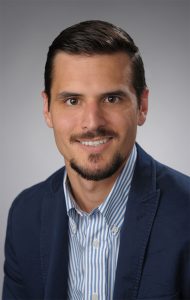 Kenneth Marfilius
Kenneth Marfilius
Assistant Teaching Professor, School of Social Work
Ken Marfilius joins the School of Social Work in Falk College as an Assistant Teaching Professor in Fall 2020.
Prior to his new appointment at Syracuse University, Marfilius served as a Visiting Teaching Professor in Falk College’s School of Social Work since 2018, and as an Adjunct Faculty Member from 2016 to 2018. Marfilius will serve as the School of Social Work’s Undergraduate Director. He has taught courses on topics such as social work intervention, military culture and social work practice, psychopathology, and others. While active duty, Marfilius served in the U.S. Air Force Biomedical Science Corps in multiple roles: active duty clinical social worker, mental health therapist, family advocacy officer in charge, and as manager of the alcohol and drug prevention and treatment program. He was commissioned in 2013 and was discharged in 2016 having obtained the rank of captain. At the Barksdale Air Force Base, Marfilius served in a variety of mental health roles related to sexual assault prevention and response, suicide prevention, and traumatic stress. Marfilius has also worked for the U.S. Department of Veteran Affairs at the Syracuse VA Medical Center in the Healthcare for Homeless Veterans Program, and as a Disruptive Behavior Committee Member.
Marfilius has given several presentations and trainings, topics ranging from veteran cultural competence to trauma-informed care, at the Association for Humanistic Counseling National Conference, the University of Pennsylvania School of Social Policy and Practice, and the United States Department of Veteran Affairs, among others.
Marfilius is honored with a National Defense Service Medal, Global War on Terrorism Service Medal, and Nuclear Deterrence Operations Service Medal. He is a recipient of the U.S. Air Force Health Professions Scholarship and the U.S. Air Force Outstanding Unit Award and has twice been awarded the Barksdale Air Force Base Medical Operations Squadron Company Grade Officer of the Quarter. Marfilius currently serves on several committees at Syracuse University, including his service as Chair of the Council on the Social Work Education Self-Study Steering Committee.
Marfilius earned a Doctorate in Clinical Social Work (D.S.W.) and Master of Social Work (M.S.W.) from the University of Pennsylvania School of Social Policy and Practice. He earned a B.A. in Psychology with a minor in Public Health from Syracuse University. He is a Licensed Clinical Social Worker in the State of North Carolina and is certified in Prolonged Exposure Therapy.
 Miriam Mutambudzi
Miriam Mutambudzi
Assistant Professor, Department of Public Health
Miriam Mutambudzi joins the Department of Public Health in Falk College as Assistant Professor in Fall 2020.
Prior to joining Syracuse University, Mutambudzi served as a Research Associate in the MRC/CSO Social and Public Health Sciences Unit at the University of Glasgow in Scotland, and a Guest Epidemiology Professor in the Department of Epidemiology and Social Medicine at the University of Antwerp in Belgium. Previously, she was an Assistant Professor in the Department of Preventive Medicine and Community Health at the University of Texas Medical Branch, and a Senior Research Program Coordinator at Johns Hopkins University’s School of Medicine.
Mutambudzi’s research focus is on chronic disease and occupational epidemiology. Much of her research has largely been directed towards the use of longitudinal data to assess disparities in morbidity, disability, and mortality, with particular interest in onset and progression of chronic diseases, work-related health outcomes, and social determinants of health in vulnerable populations and older adults in Europe and the U.S. She has published extensively in peer-reviewed journals including the European Journal of Ageing, Journal of Gerontology: Medical Science, and the Journal of Occupational and Environmental Medicine, among many others. She has presented at the International Union for the Scientific Study of Population (IUSSP), Epidemiology in Occupation Health Conference (EPICOH), and the Population Association of America (PAA).
Mutambudzi is the 2020 recipient of the Kammer Emmett Award from the American College of Occupational and Environmental Medicine (ACOEM) for the most outstanding article published in the Journal of Occupational and Environmental Medicine in 2019. Past research support includes funding from the National Institute for Occupational Safety and Health (NIOSH). She is an Editorial Board Member of the Journal of Aging and Health and has served as an editorial peer reviewer for many other journals. She is a member of the European Association for Population Studies.
Mutambudzi earned her Ph.D. in Public Health from University of Connecticut in 2012. She also holds a Master of Public Health (MPH) and a B.A. in International Studies from the West Virginia University.
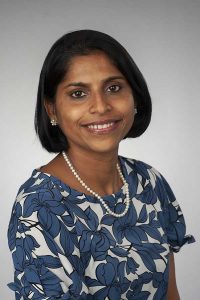 Latha Ramalingam
Latha Ramalingam
Assistant Professor, Department of Nutrition and Food Studies
Latha Ramalingam joins the Department of Nutrition and Food Studies in Falk College as Assistant Professor in Fall 2020. She works broadly in areas of metabolic disease, which include obesity and diabetes.
Prior to joining Syracuse University, Ramalingam was a Research Assistant Professor in the Department of Nutritional Sciences at Texas Tech University since 2014. Previously, she served at Indiana University’s School of Medicine as a Postdoctoral Fellow and a Research Assistant.
Ramalingam’s research interests include strategies, both in vitro and in vivo, to investigate the effects of Bioactives (omega-3 fatty acids, Vitamin D) in maternal obesity using animal models. She also has projects investigating the mechanism behind the role of Renin Angiotensin System (RAS) in beta cells. She has published in several journals, including Scientific Reports, Journal of Nutritional Biochemistry, Molecular Nutrition & Food Research, Nutrients, and Diabetes. She has presented her work at the American Society of Nutrition, American Heart Association and Obesity Society.
Ramalingam’s research has been supported by the American Heart Association, the USDA, the National Institutes of Health (NIH) National Center for Complementary and Integrative Health, the Obesity Society, and Texas Tech University. She is the recipient of several awards, including Early Career Travel Award for International Congress of Nutrition, Argentina 2017, and 2016 IJO Young Investigator Award, 13th International Congress of Obesity, Vancouver, Canada and the Early Career Grant Challenge from Obesity Society among other awards. Currently, she serves on the Editorial Board for the Journal of Nutritional Biochemistry, International Journal of Diabetes, and Obesity and Nutritional Disorders.
Ramalingam earned her Ph.D. at the Indiana University’s School of Medicine, Department of Biochemistry and Molecular Biology, in 2014. She also holds a M.Tech from Vellore Institute of Technology’s School of Biotechnology in Vellore, India and a B.Pharm from Sri Ramachandra Medical College’s School of Pharmacy in Chennai.
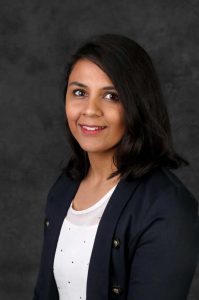 Maryam Yuhas
Maryam Yuhas
Assistant Professor, Department of Nutrition and Food Studies
Maryam Yuhas joins the Department of Nutrition and Food Studies as Assistant Professor in fall 2020. At Syracuse University, Yuhas will teach in the nutrition program.
Prior to joining Syracuse University, Yuhas served as a Postdoctoral Research Associate at the University of Virginia School of Medicine, Department of Public Health Sciences, since 2019. Previously, she has practiced as Registered Dietitian in two different clinical settings and has held roles as Graduate Research Assistant for the University of Virginia’s Department of Public Health Sciences, Virginia Tech’s Department of Human Nutrition, Foods, and Exercise, and for Oklahoma State University’s Department of Nutritional Sciences. She has also held other intern, extern, and teaching assistant roles. Yuhas’s research is rooted in the socioecological perspective and focuses on working with minority, low-income, and rural communities to implement and evaluate nutrition- and physical activity-based interventions. She is published in the Journal of the Academy of Nutrition and Dietetics, Journal of Medical Internet Research (JMIR) mHealth and uHealth, Journal of Appalachian Health, Contemporary Clinical Trials, Preventive Nutrition and Food Science, and Nutrition and Metabolic Insights. She has given scientific presentations at The Obesity Society, Experimental Biology, and the Oklahoma Academy of Nutrition and Dietetics, among others.
Current research projects for which Yuhas serves as Postdoctoral Research Associate are supported by the National Institute on Minority Health and Health Disparities of the National Institutes of Health (NIH) and by the Patient Centered Outcomes Research Institute (PCORI). Yuhas is the recipient of several awards, including the 2013 Weber Gerontology Scholarship Award at Oklahoma State University and the 2016 Interdisciplinary Graduate Education Program Award at Virginia Tech, among others. She currently serves as a reviewer for several journals including the Journal of Medical Internet Research, the Journal of the Academy of Nutrition and Dietetics, and the Journal of Adolescent Health. She is a member of the Society of Behavioral Medicine, the Academy of Nutrition and Dietetics and several community-based advisory boards and coalitions.
Yuhas earned her Ph.D. in Human Nutrition, Foods, and Exercise from Virginia Tech in 2019, specializing in Behavioral and Community Sciences. She earned her M.S. in Nutritional Sciences from Oklahoma State University and her B.S. in Nutrition and Dietetics from Benedictine University. She completed her Dietetic Internship at Oklahoma State University and earned her Registered Dietitian (RDN) credential from Commission on Dietetics Registration in 2014.
Quantifying COVID-19’s Impact on Mental Health
A Syracuse University Story by Shaina M. Hill originally published on May 15, 2020.
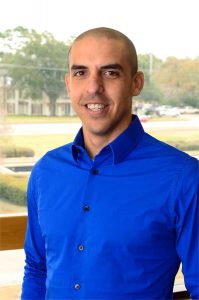 The public has changed the ways they live and work due to the threat of the COVID-19 pandemic on physical health. This upheaval of daily routines and uncertainty for the future has led to increased stress, loneliness, fear, anxiety, sadness and worrying, which has taken a toll on mental health.
The public has changed the ways they live and work due to the threat of the COVID-19 pandemic on physical health. This upheaval of daily routines and uncertainty for the future has led to increased stress, loneliness, fear, anxiety, sadness and worrying, which has taken a toll on mental health.
Tiago Barreira, assistant professor of exercise science at Falk College, is the lead investigator on a study contemplating the effects on mental health during this time when many are grappling with altered daily routines, financial pressures and social isolation.
“The changes and events related to COVID-19 are already being recognized as having a great impact on many aspects of our lives, including mental health,” he says. “Collecting data to understand its effects will help guide treatment for mental health issues in the future.”
When so much uncertainty exists, preexisting mental health disorders, including anxiety and depression, can worsen. By learning more about the mental health status of adults during this time, Barreira hopes to contribute to a larger discussion about how to help people impacted by events and restrictions related to COVID-19.
“This study is one of many research projects that are being conducted on mental health during the COVID-19 pandemic,” he says. “The combination of research will be very helpful to guide policy and treatment of mental health.”
Barreira’s primary research at Syracuse University has been in determining the impact of physical behaviors—such as sleep, sedentary behavior and physical activity—on health. With the crisis unfolding, he began to think about the relationship between physical behaviors and mental health. Barreira developed a research study with his colleague, Kevin Heffernan, Dean’s associate professor of exercise science at Falk College.
The study uses a series of questionnaires that look at an individual’s mental health conditions and behaviors, financial situation and other criteria, and whether they have taken any steps to improve their mental health. Some questions are left open-ended to account for variables. One of the main behaviors the study is interested in is physical activity and what role, if any, it plays in coping with stress.
“We hope we’ll be able to identify common traits and actions from those who were able to maintain a better mental health status,” he says.
By comparing questionnaire respondents’ mental health levels to existing information and demonstrating what coping activities improved the mindset for individuals, Barreira hopes policymakers will be able to create health initiatives to benefit the public
Barreira is still recruiting participants and hopes to complete the study and publish its findings soon. “The research is only as good as the data that is collected,” he says. “We still need many more respondents to be able to have confidence in our findings.”
Barreira feels his research has great importance for the mental health of a population facing tremendous uncertainty. He cites a recent interview with The Daily Show host Trevor Noah in which New York governor Andrew Cuomo said he fears “an entire generation” of Americans will face PTSD due to COVID-19.
“This is a unique situation that is affecting everyone in the country,” Barreira says. “Mental health issues will be one of the larger issues that we will face in the future and understanding its causes and potential treatments will be key.”
If you would like to be a part of this important research, please complete the questionnaire.
Why coronavirus appears tied to fewer heart attacks
 Falk faculty members Brooks Gump, Falk Family Endowed Professor of Public Health and Kevin Heffernan, Professor of Exercise Science and director of the Human Performance Laboratory, co-authored an op-ed that appears in U.S. News & World Report that explores a new anomaly with the rise in COVID-19 cases – namely, a concurrent decline in the number of hospital admissions for heart attacks and other cardiac events. They cite a number of possible explanations for this drop while helping readers understand the etiology of both cardiovascular disease and, separately, cardiac events.
Falk faculty members Brooks Gump, Falk Family Endowed Professor of Public Health and Kevin Heffernan, Professor of Exercise Science and director of the Human Performance Laboratory, co-authored an op-ed that appears in U.S. News & World Report that explores a new anomaly with the rise in COVID-19 cases – namely, a concurrent decline in the number of hospital admissions for heart attacks and other cardiac events. They cite a number of possible explanations for this drop while helping readers understand the etiology of both cardiovascular disease and, separately, cardiac events.
Fifth Annual Ann Selkowitz Litt Distinguished Speaker Series features Rob Skinner

Falk College is pleased to welcome Rob Skinner, MS, RD, CSSD, CSCS as the featured speaker of the Fifth Annual Ann Selkowitz Litt Distinguished Speaker Series. We invite you to join us Tuesday, February 25, 2020 at 6:00 p.m. in Grant Auditorium, Falk Complex for his lecture, “From the Military to the Olympics: Nutrition for Sport Performance Enhancement.” The event is free and open to the public. Light refreshments will be served prior to the lecture at 5:30 p.m.
Skinner is the Senior Sports Dietitian at the United State Olympic Training Center in Colorado Springs, Colorado. He brings 22 years of experience working as a dietitian and exercise physiologist with athletes at all levels, including positions with the Washington Redskins as a Sports Dietitian/Nutritionist, the U.S. Navy SEALs as a Performance Dietitian, the University of Virginia as Director of Sports Nutrition, and several positions with Georgia Tech.
In his lecture, Skinner will share about his role preparing athletes to compete at the highest level with the United States Olympic Team in the Tokyo 2020 Summer Olympics, as well as insights from his career experiences preparing professional and collegiate athletes for competition and military forces for combat.
“Rob’s extensive experience in nutrition and sports intersects numerous disciplines and interests. He has worked with many different populations, particularly with the military and with professional and collegiate athletes,” says Kay Stearns Bruening, PhD, RDN, FAND, Falk College associate professor in the Department of Nutrition and Food Studies. “We are thrilled he will share his insights with us for this year’s Litt Lecture.”
Skinner holds a master’s degree in exercise science from Georgia State University, as well as bachelor’s degrees in education and nutrition from the University of Georgia and Georgia State University, respectively. He is a registered dietitian with the Academy of Nutrition and Dietetics (AND) and holds certifications with AND, the National Strength and Conditioning Association, and the American College of Sports Medicine. Skinner is author and co-author of several publications, including chapters in AND publications, Sports Nutrition: A Guide for the Professional Working with Active People and Working with the Collegiate Athlete and Weight and Body-Focused Sports.
Now in its fifth year, the Ann Selkowitz Litt Distinguished Speaker Series is named after Falk College nutrition alumna Ann Selkowitz Litt ’75, a nationally known nutritionist who helped children and adolescents with eating disorders and assisted developing athletes in reaching their full potential. The nutrition consultant to CosmoGirl magazine, Litt was the author of “The College Students’ Guide to Eating Well on Campus,” “Fuel for Young Athletes” and “The ADA Guide to Private Practice.” She was the nutritionist for the NFL’s Washington Redskins and served as spokesperson for several media campaigns during her career, including the “Got Milk” campaign. After her death, the Ann S. Litt Foundation, Inc., was created to support nutrition education.
For information about the Ann Litt Lecture and for accommodations requests, please contact Annette Hodgens at ahodgens@syr.edu or 315.443.9816.
Page 9 of 10
